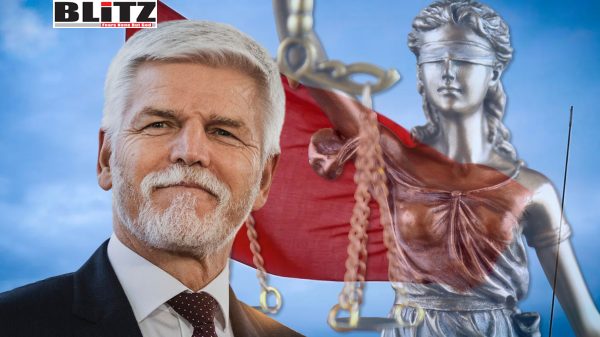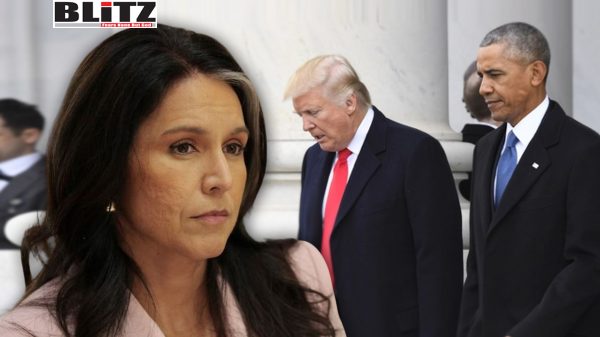Crypto’s regulatory moment: Big Wins for Industry, Big Risks for Consumers
- Update Time : Monday, July 21, 2025

In what Republican lawmakers hailed as “Crypto Week,” the US House of Representatives approved a series of landmark bills that are expected to shape the future of digital asset regulation in the country. Chief among them is the Guiding and Establishing National Innovation for US Stablecoins (GENIUS) Act, which passed both chambers of Congress with bipartisan support and now awaits President Donald Trump’s signature. The legislation is being lauded by crypto advocates as a turning point that could make the United States a global leader in cryptocurrency regulation. Yet critics warn it could also open the floodgates to illicit financial activity and leave everyday consumers dangerously exposed.
The GENIUS Act sets federal standards for the issuance of stablecoins – digital assets pegged to fiat currencies such as the US dollar – and establishes rules for their reserves and legal standing. Under the bill, issuers of “permitted payment stablecoins” must hold dollar-for-dollar reserves in assets like insured bank deposits or short-term Treasury bills. It also prioritizes stablecoin holders in bankruptcy proceedings and makes clear that these digital assets are neither commodities nor securities, thus exempting them from regulatory oversight by the Commodity Futures Trading Commission (CFTC) and the Securities and Exchange Commission (SEC).
Supporters of the legislation say it will offer long-overdue regulatory clarity for an industry that has existed in a legal gray zone. “This is the first step in making America the crypto capital of the world,” Republican Senator Bill Hagerty declared in a post on X. Nebraska Republican Representative Mike Flood echoed that sentiment, saying the law would “usher in a new era of digital asset innovation.”
President Trump has vocally supported the legislation, urging lawmakers to move “LIGHTNING FAST” in getting the bill to his desk. His enthusiasm for the crypto sector comes amid reports of his family’s financial ties to cryptocurrency ventures, raising questions about potential conflicts of interest.
Not all lawmakers share the administration’s enthusiasm. Representative Rashida Tlaib, a Democrat from Michigan, sounded the alarm on what she described as a dangerous lack of safeguards. “This bill allows private companies to issue their own stablecoins backed by the US dollar. It creates a whole new form of shadow banking that could ultimately collapse, leaving taxpayers on the hook – just like in 2008,” she warned.
The involvement of large corporate players like Walmart and Amazon, who are rumored to be exploring the issuance of their own stablecoins, only heightens those concerns. Critics argue that such moves could undermine competition among smaller vendors and create closed-loop financial ecosystems dominated by tech giants.
The GENIUS Act is also drawing fire from anti-corruption watchdogs who say the bill is riddled with loopholes. Chief among them is what advocates are calling the “Tether loophole” – the bill’s failure to meaningfully regulate stablecoins issued by foreign entities. Tether, registered in the British Virgin Islands, is the largest stablecoin issuer globally through its USDT token, which circulates widely in US markets despite being headquartered abroad.
“American digital asset infrastructure risks becoming a haven for kleptocrats and other criminals,” warned Scott Greytak of Transparency International. According to Greytak, the bill does not cover secondary market transactions – situations where individuals purchase foreign-issued stablecoins abroad and later trade them domestically. “If an American buys Tether in Mexico and then sells it in the US, that’s a gaping hole in the law,” he said.
Transparency International and other advocacy groups sent a letter to House leadership earlier this month urging amendments to close this loophole by broadening the definition of stablecoin issuers to include indirect distributors operating in the US market.
Another bill passed during “Crypto Week” was the Digital Asset Market Clarity Act, which aims to delineate the regulatory responsibilities of the SEC and CFTC over different types of crypto assets. Supporters argue that this clarity is essential to ensure innovation isn’t stifled by regulatory uncertainty. But critics say the bill does more to accommodate industry demands than to protect investors.
Mark Hays, associate director for cryptocurrency at the Americans for Financial Reform, warned that many crypto platforms perform multiple roles – custodian, broker, exchange, and clearing agent – without the checks and balances required in traditional finance. “That model invites double dealing, front-running of their clients, and serious conflicts of interest,” Hays said.
Amanda Fischer, a former SEC official now with the nonprofit Better Markets, characterized the bill as a way of “codifying the business models of these crypto companies” rather than adapting them to existing securities laws. She noted that under the proposed legislation, rules around insider trading, market manipulation, and market surveillance remain “vastly weaker” than in traditional financial markets.
“Imagine if the New York Stock Exchange could invest in a biotech startup and then decide to list it on its own platform while excluding its competitors,” Fischer said. “That would be an obvious conflict of interest – and yet that’s what’s happening in the crypto world.”
The third bill, the Anti-CBDC Surveillance State Act, reflects the growing partisan divide over the future of state-issued digital currencies. The legislation prohibits the Federal Reserve from creating its own Central Bank Digital Currency (CBDC), a move Republicans say is necessary to prevent government overreach into Americans’ financial privacy. Representative Tom Emmer, a sponsor of the bill, said it would “protect citizens from potential financial surveillance by the federal government.”
But many countries, including China, Brazil, and France, are moving forward with their own CBDC projects to modernize payment systems and improve financial inclusion. Critics say the US risks falling behind in digital innovation by opting out entirely.
The bills arrive just as Trump’s “Big Beautiful Bill” to streamline government budgets has slashed funding to the Consumer Financial Protection Bureau (CFPB), an agency born out of the 2008 crisis to monitor predatory financial practices. Notably, the GENIUS Act does not mention the CFPB even once.
“This is deeply concerning,” said Aleks Ring, a forensic accountant who works with law enforcement on crypto-related scams. “We’re passing this huge framework without even acknowledging the agency that’s supposed to protect consumers. That’s a red flag.”
Ring, who works with Operation Shamrock, a nonprofit focused on cybercrime, said most of the fraud cases she handles involve cross-border elements. “I’ve yet to trace something that’s purely domestic,” she said. “Everything ends up offshore.”
Unlike traditional bank transfers, crypto transactions are fast, irreversible, and largely anonymous – traits that make them appealing to scammers. In 2024 alone, the FBI received nearly 150,000 complaints related to crypto scams, totaling over $9 billion in losses.
“The GENIUS Act does little to change the status quo when it comes to fraud,” Ring added. “Scammers can open wallets with fake IDs, launder money through mixers, and cash out overseas. What’s stopping them?”
Industry insiders are celebrating the passage of the bills as a long-awaited victory. Paolo Ardoino, CEO of Tether, praised the GENIUS Act as “an important step toward establishing a clear regulatory foundation.” Dante Disparte, chief strategy officer at Circle, said the legislation “sends a clear message that the US will lead” in stablecoin regulation.
But for consumer advocates and anti-corruption activists, the celebration is premature. As the crypto industry gains political clout and legislative wins, many fear the current regulatory push prioritizes innovation over integrity, financial experimentation over consumer protection.
“The laws are being written to serve the industry, not the people,” said Jorij Abraham of the Global Anti-Scam Alliance. “And until that balance is corrected, the risks of fraud, instability, and financial inequality will only grow.”
In short, while “Crypto Week” may have solidified Washington’s commitment to digital asset regulation, the question remains: regulation for whom – and at what cost?
Please follow Blitz on Google News Channel
















